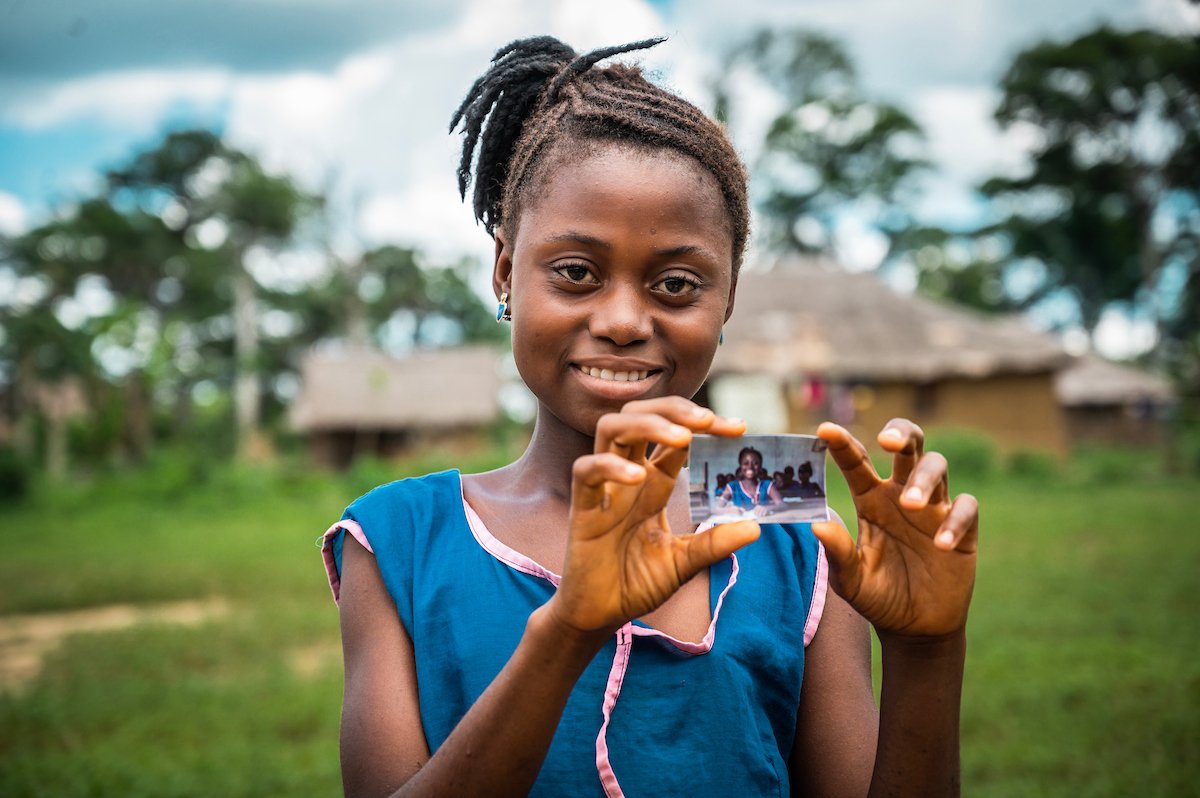Sierra Leone
When Street Child’s work began in Sierra Leone in 2008, it was the poorest nation in the world. Today, children continue to face significant barriers to learning: 36% of children never complete elementary school and many more leave school without foundational literacy or numeracy skills. Street Child’s research has shown that poverty continues to be the primary barrier to education, often alongside social barriers such as loss of a caregiver (e.g. to Ebola or COVID), teenage pregnancy, parental attitudes to education, and poor teaching quality. 88% of out of school children in Sierra Leone live in rural areas, where only one in four adults can read, write, or count.
Without intervention, children risk getting stuck in a cycle of illiteracy and poverty. Street Child’s rural education model ‘Schools for Tomorrow’ works to tackle this educational disadvantage by empowering communities to transform the quality of elementary education.
WHAT WE ARE DOING
In Sierra Leone, Street Child works predominantly alongside an excellent national NGO partner called Street Child of Sierra Leone (SCoSL), and together we have increased opportunities to access quality basic education for more than 150,000 children nationwide, including through the post-conflict, Ebola crisis and COVID-19 crisis periods. Street Child of Sierra Leone has an established nationwide presence in every province and works alongside families and communities to overcome barriers to learning.
Through a combination of psychosocial support, quality education and business support, we give children the chance to live in a secure home with a family and to access the education they need to set them up for life.
Whether we’re supporting children orphaned by crises like Ebola or COVID-19 or helping girls to go to school, we focus on understanding the problem and delivering long-term solutions. We help some of the hardest-to-reach and most vulnerable groups in Sierra Leone: street children, children in rural communities, children in poverty, girls, and children impacted by crisis.
IMPACT IN SIERRA LEONE TO DATE
208,750 children now have improved access to school and / or an improved school to go to.
31,903 households reached with family business for education grants and now have a sustainable livelihood, leading to more food and the ability to afford school.
1,013 classrooms across 334 schools supported through renovations or construction.
More than 1,000 teachers trained and can now access a government salary, making their financial situation much more stable and improving children’s learning.
EDUCATING CHILDREN
In Sierra Leone’s most remote rural regions, Street Child’s ‘Schools for Tomorrow’ model addresses access and quality barriers to primary education through community partnership. Since 2010, Street Child has worked side by side with over 350 rural communities to kick-start or transform learning. Specific interventions have included the construction, renovation and resourcing of classrooms, investment in the training and development of more than 1,700 teachers, providing WASH facilities and training, and developing community advocacy and sustainability strategies. More than 100,000 rural children have enrolled in improved quality education as a result of our intervention.
In 2019, Street Child began rolling out it's successful Teaching at the Right Level (TaRL) based approach to rapidly improve the foundational literacy and numeracy skills of children.
EMPOWERING FAMILIES
Street Child’s award-winning ‘Family Business for Education’ model addresses individual social and financial barriers to education for the most vulnerable categories of children, including street-connected children, teenage mothers and children affected by disability. To date over 33,000 families have been supported to develop a sustainable source of income through a tailored package of training, business grants and saving/mentoring. This model of financial empowerment, alongside intensive social support and community level advocacy, has led to the enrolment and retention of more than 67,000 children in school, who otherwise would have little opportunity to complete basic education.
TRAINING TEACHERS
Many teachers in rural schools have never had formal training. Our teaching specialists provide ongoing in-classroom training, mentoring, and supervision for more than 600 teachers across Sierra Leone.
The training and certification of teachers can transform the lives of the teachers and their communities, as well as the children’s learning outcomes in schools.
During the Ebola epidemic, our training programs extended to educating communities about the disease. In this process, we trained more than 1,700 Ebola Educators, whose efforts were integral to the process of containing the spread of the disease, helping save thousands of lives.
More stories
MARIE, THE MOTHER SELLING CHARCOAL TO SEND HER DAUGHTER TO SCHOOL
'I'm so thankful for the opportunity to send Fatima to school.
Fatima is in Grade 6. Street Child gave her mother Marie a micro grant to start a business selling charcoal from her home. With the profits, Marie can send her daughter to school.
ADAMA, THE SOCIAL WORKER CHANGING LIVES
'People are so keen for the children to study but they don’t have the means.'
Adama Glenna has worked as a Business Officer with Street Child for four years. Her team distributes and monitors micro business grants to caregivers. Adama lives in one of the communities in which she works with her husband and two children. “It helps for people to know me, trust me and open up to me.”
One of her neighbors received a grant to set up a business selling Africannah soup, in order to fund her daughter’s schooling. 'Now her voice is the first thing you hear in the morning!'






